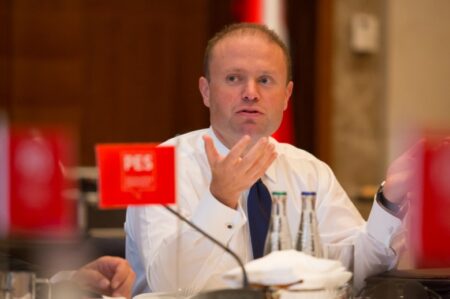The last time Malta had a national minimum wage increase was in 1989, 27 years ago. This month’s increase reflects ongoing progress and stability in the country.
Malta’s sound economic footing follows important decisions taken by Joseph Muscat’s government, and has allowed for unprecedented social measures.
The Labour government is also working to remove precarious working conditions.
PES president Sergei Stanishev said:
“From the beginning, Joseph Muscat’s government has worked to create not only new jobs but, more importantly, quality jobs. This increase in the minimum wage is not only an assurance for further quality jobs in Malta, but also a quantum leap for better living standards for workers and their families living on low incomes.
“We are proud of Malta’s accomplishments which benefit those who need them most. We recommend other countries to follow suit in striking the right balance between achieving fiscal success and delivering on real social issues.”
The Maltese government’s minimum wage policy puts into practice one of the key priorities of the PES: to introduce decent minimum wages across Europe. Raising the minimum wage improves the personal situation of workers on the lower end of the payscale, while at the same time supporting growth led by demand.



